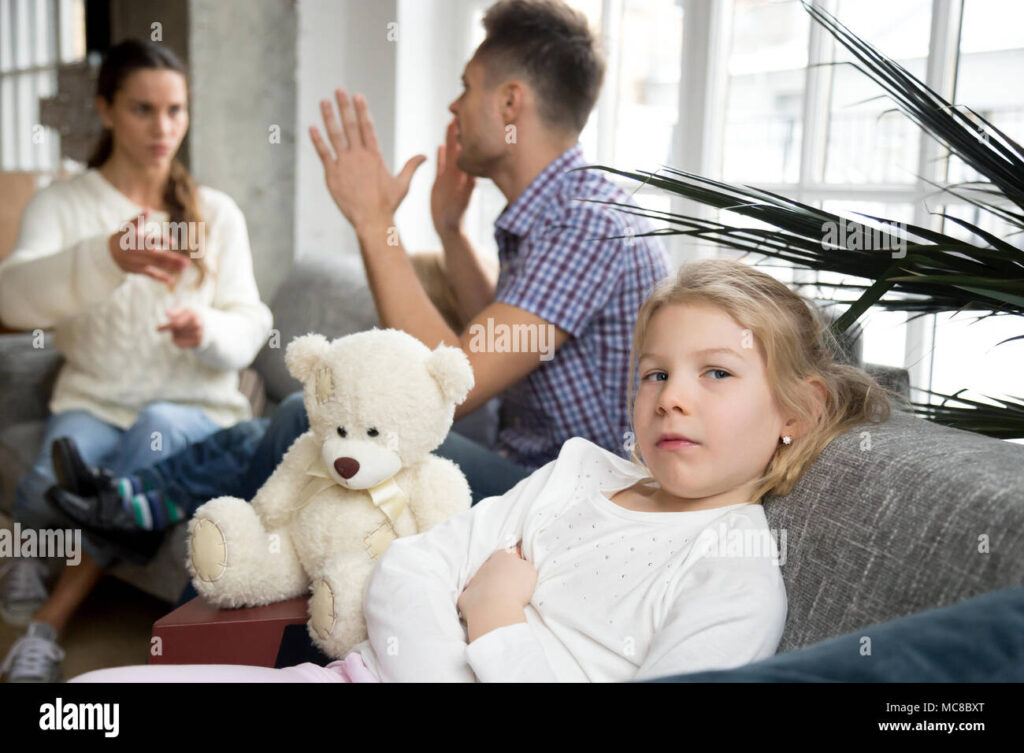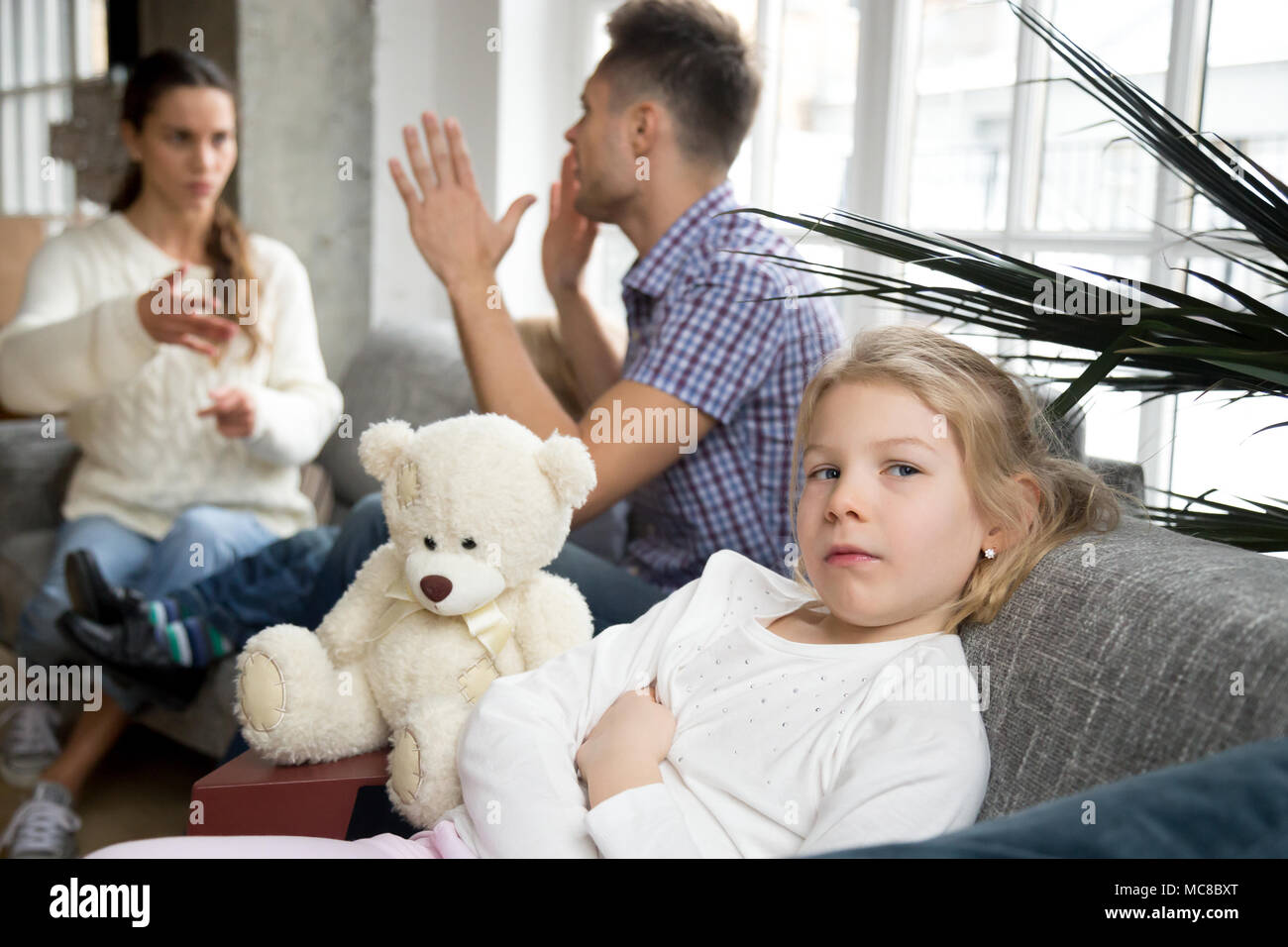
When Mom and Dad Are Fighting: Understanding the Impact on Children and How to Cope
Witnessing conflict between parents is a common experience for many children. While occasional disagreements are a normal part of any relationship, frequent or intense arguments between mom and dad are fighting can have a significant impact on a child’s well-being. This article aims to explore the various ways parental conflict affects children, provide insights into the potential long-term consequences, and offer practical strategies for parents to manage disagreements in a healthier way, minimizing the negative effects on their children.
The Immediate Impact of Parental Conflict on Children
When mom and dad are fighting, children often experience a range of immediate emotional and behavioral responses. These can vary depending on the child’s age, personality, and the severity of the conflict. Common reactions include:
- Anxiety and Fear: The sound of raised voices, angry words, or physical altercations can be incredibly frightening for children, leading to feelings of anxiety and insecurity. They may worry about the stability of their family unit and fear that their parents will separate.
- Sadness and Depression: Witnessing their parents in conflict can be deeply upsetting, leading to feelings of sadness, hopelessness, and even symptoms of depression. Children may internalize the conflict and blame themselves for their parents’ unhappiness.
- Behavioral Problems: Parental conflict can manifest in behavioral issues such as aggression, defiance, difficulty concentrating in school, and sleep disturbances. Children may act out as a way to cope with their stress and anxiety.
- Guilt and Self-Blame: Younger children, in particular, may believe that they are responsible for their parents’ arguments. They may try to intervene or mediate, which can be emotionally draining and ineffective.
- Physical Symptoms: Stress from witnessing parental conflict can also manifest in physical symptoms such as headaches, stomachaches, and bedwetting.
Long-Term Consequences of Exposure to Parental Conflict
The long-term consequences of growing up in a home where mom and dad are fighting frequently can be significant and far-reaching. Research has consistently shown a link between exposure to parental conflict and a range of negative outcomes in children, including:
- Mental Health Issues: Children who witness frequent parental conflict are at a higher risk of developing mental health problems such as anxiety disorders, depression, and post-traumatic stress disorder (PTSD).
- Relationship Difficulties: Witnessing unhealthy relationship dynamics between parents can negatively impact a child’s ability to form and maintain healthy relationships in adulthood. They may struggle with trust, intimacy, and conflict resolution.
- Academic Problems: The stress and anxiety associated with parental conflict can interfere with a child’s ability to concentrate in school, leading to academic difficulties and lower achievement.
- Behavioral Problems: Children exposed to parental conflict are more likely to engage in risky behaviors such as substance abuse, delinquency, and aggression.
- Lower Self-Esteem: Constant exposure to negativity and tension can erode a child’s self-esteem and sense of worth. They may feel unloved, unwanted, and insecure.
- Increased Risk of Divorce: Studies have shown that children who grow up in homes where mom and dad are fighting frequently are more likely to experience divorce themselves in adulthood. They may have learned unhealthy patterns of communication and conflict resolution from their parents.
Understanding the Underlying Causes of Parental Conflict
To effectively address parental conflict and minimize its impact on children, it’s important to understand the underlying causes. Common sources of conflict in relationships include:
- Financial Stress: Money problems are a significant source of conflict for many couples. Disagreements about spending habits, debt, and financial priorities can lead to frequent arguments.
- Division of Labor: Unequal distribution of household chores and childcare responsibilities can create resentment and conflict. Both partners need to feel that they are contributing fairly to the household.
- Communication Problems: Poor communication skills, such as defensiveness, criticism, and stonewalling, can escalate disagreements and make it difficult to resolve conflicts effectively.
- Differences in Parenting Styles: Disagreements about discipline, rules, and values can lead to conflict between parents. It’s important to find common ground and present a united front to the children.
- External Stressors: External stressors such as job loss, illness, or family problems can put a strain on the relationship and increase the likelihood of conflict.
- Unresolved Issues from the Past: Unresolved issues from previous relationships or childhood experiences can resurface and contribute to conflict in the present.
Strategies for Managing Parental Conflict in a Healthy Way
While it’s impossible to eliminate all conflict from a relationship, there are strategies that parents can use to manage disagreements in a healthier way and minimize the negative impact on their children. These include:
- Communicate Respectfully: Avoid name-calling, insults, and personal attacks. Focus on expressing your feelings and needs in a calm and respectful manner.
- Listen Actively: Truly listen to your partner’s perspective and try to understand their point of view, even if you don’t agree with it.
- Take a Break: If the argument is escalating, take a break and cool down before continuing the conversation. This can help prevent the situation from spiraling out of control.
- Find a Compromise: Look for solutions that meet both of your needs. Be willing to compromise and find common ground.
- Seek Professional Help: If you are struggling to manage conflict on your own, consider seeking professional help from a therapist or counselor. They can provide you with tools and strategies for improving your communication and resolving conflicts effectively.
- Protect Your Children: The most important thing is to protect your children from witnessing your arguments. Avoid arguing in front of them whenever possible. If you do argue, make sure it’s done calmly and respectfully. Never involve your children in your disputes or ask them to take sides.
Creating a Safe and Supportive Environment for Children
Even when mom and dad are fighting, creating a safe and supportive environment for children is crucial. This involves:
- Reassuring Your Children: Let your children know that they are loved and safe, even when you and your partner are disagreeing. Reassure them that the conflict is not their fault and that you will work things out.
- Providing a Stable Routine: Maintaining a consistent routine can help children feel more secure and stable, especially during times of stress.
- Spending Quality Time with Your Children: Make time to spend quality time with your children, engaging in activities that they enjoy. This can help them feel loved and connected.
- Being a Role Model: Model healthy communication and conflict resolution skills for your children. Show them how to disagree respectfully and find solutions that work for everyone.
- Seeking Support: Don’t be afraid to seek support from friends, family, or a therapist. Talking to someone about your challenges can help you cope with stress and manage conflict more effectively.
When to Seek Professional Help
If mom and dad are fighting frequently and the conflict is having a significant impact on your children, it’s important to seek professional help. A therapist or counselor can provide you with tools and strategies for improving your communication, resolving conflicts effectively, and creating a healthier family environment. You should also seek professional help if you or your partner are experiencing any of the following:
- Domestic Violence: If there is any physical or emotional abuse in the relationship, it’s crucial to seek help immediately. Domestic violence is never acceptable and can have devastating consequences for children.
- Substance Abuse: If either partner is struggling with substance abuse, it can exacerbate conflict and create a chaotic and unstable environment for children.
- Mental Health Issues: If either partner is experiencing mental health issues such as depression, anxiety, or PTSD, it can impact their ability to manage conflict and parent effectively.
Conclusion
Witnessing mom and dad are fighting can be a stressful and traumatic experience for children. Frequent or intense parental conflict can have a significant impact on their emotional, behavioral, and academic well-being. By understanding the underlying causes of parental conflict and implementing strategies for managing disagreements in a healthier way, parents can minimize the negative effects on their children and create a more stable and supportive family environment. Remember to prioritize your children’s well-being and seek professional help if you are struggling to manage conflict on your own. [See also: The Impact of Divorce on Children] It is vital to remember that the well-being of children is paramount when parents disagree. Addressing the root causes of these disagreements and seeking help when needed can lead to a more harmonious home environment for everyone involved. When mom and dad are fighting less, children thrive. A healthy family dynamic benefits all members, and open communication is key to achieving this. Remember, creating a peaceful home is an investment in your children’s future. If mom and dad are fighting, remember to prioritize the children’s emotional safety.

